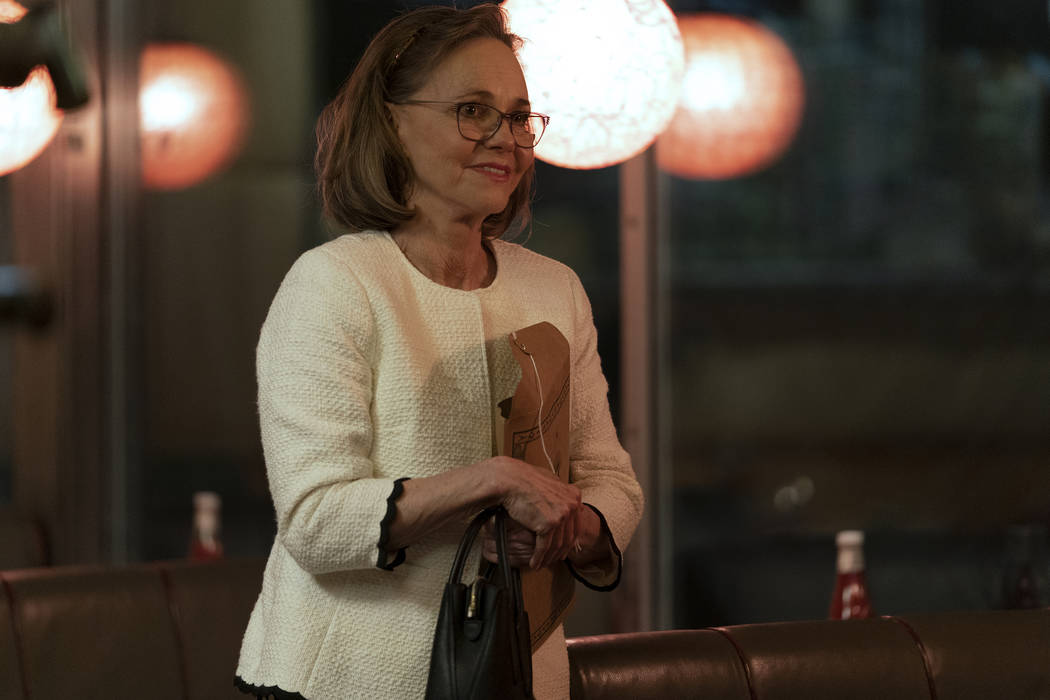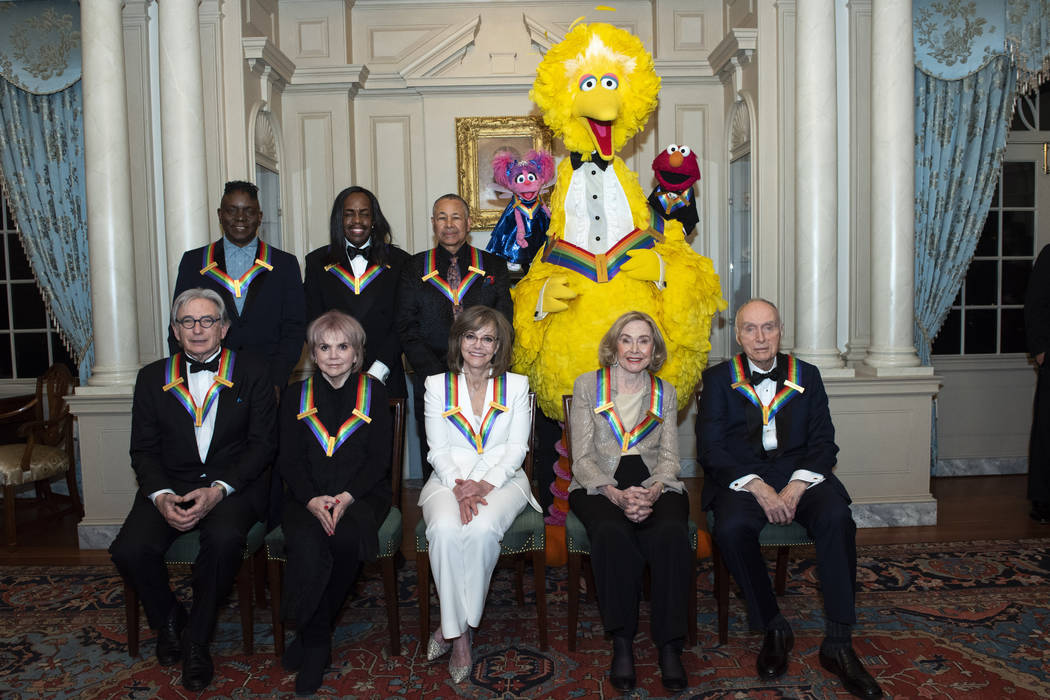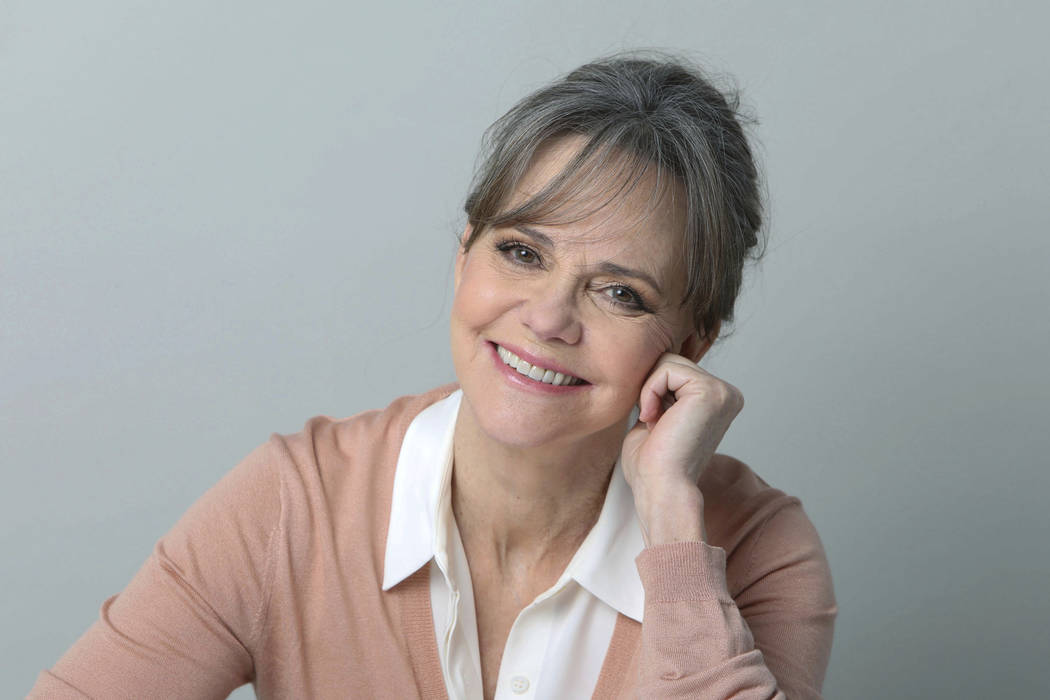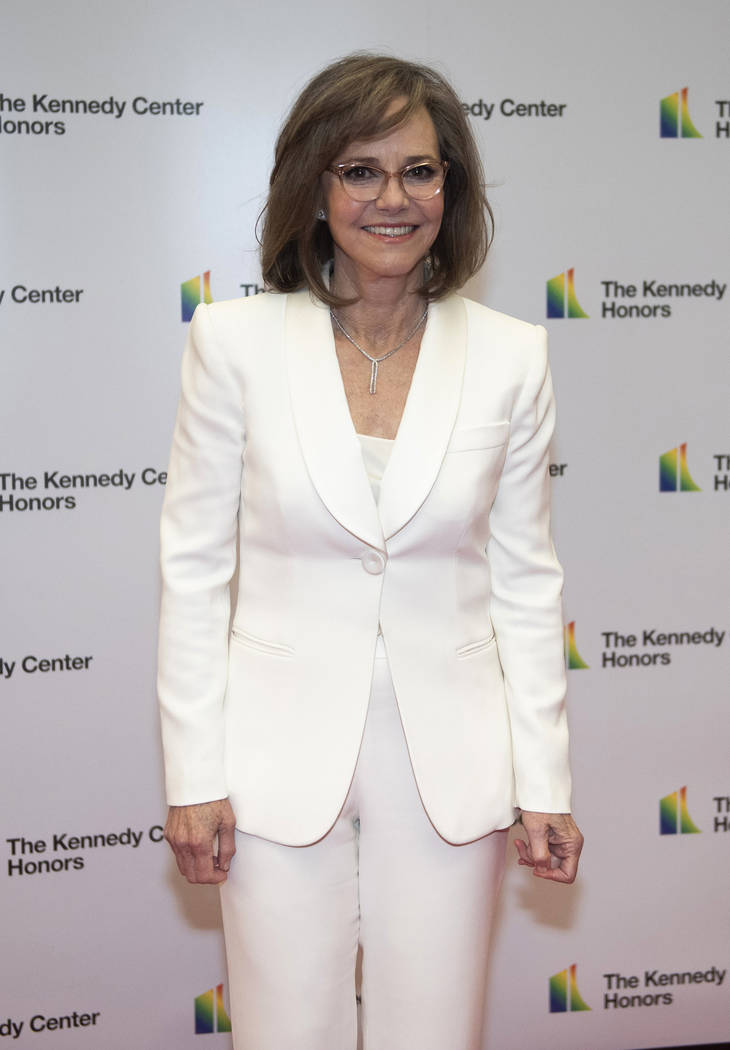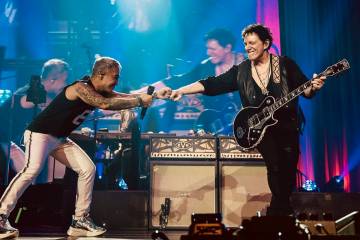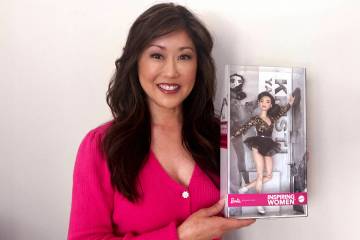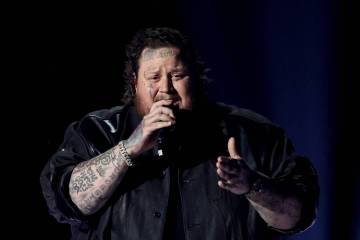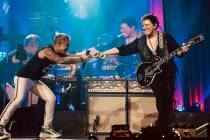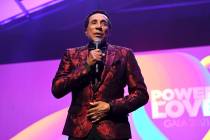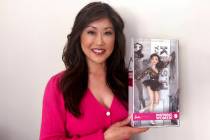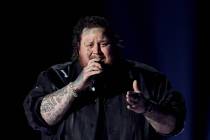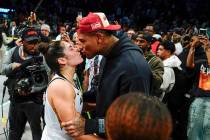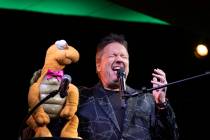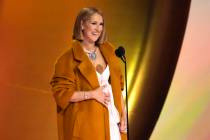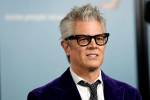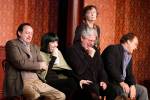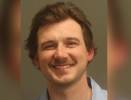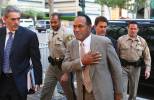Sally Field talks new TV series on AMC, being a grandma
She calls it “the click.” It’s a sensation that actress Sally Field, 73, gets when she’s firing on all cylinders.
“I love it when I feel a character so clearly and hear the click,” the two-time Oscar and three-time Emmy winner says. “The ringing of what’s untrue is gone, things fall away and you feel truly alive.”
The 5-foot-3 powerhouse, who has been a wife to Lincoln and a mother figure to Spider-Man, is going for that feeling on her new TV series, “Dispatches From Elsewhere,” which debuted March 1 on AMC.
The trippy anthology series follows a group of ordinary people (including Richard E. Grant and series creator/star Jason Segel) who don’t see the beauty in everyday life until their perspective is changed. They a find a puzzle hiding just behind the veil of everyday life when they are brought together by a treasure hunt.
Review-Journal: What is a great Sunday?
Sally Field: I’m such a homebody. I love to read and just be. A great Sunday is a big family dinner at my house with my children and their spouses and grandchildren. Togetherness.
Tell us about your new series.
I really can’t describe it. It’s a very unique show, which is why I did it. That’s all I can really say about it. It’s a mystery upon a mystery.
Do you still get nervous when a show is about to debut?
It’s fabulous and horrifying to see a film or a TV show for the first time with an audience or even friends. I do get lost in the story, but I have to honestly say I’m pretty much focused on myself. My heart is beating really fast. I feel like the curtain is going up. People say, “Why are you still nervous?” … I’m still watching my work and hoping I squeak it out.
You started in this business in 1964. What was life like for an actress then?
I was often the only woman on that set unless there were other actresses. Sometimes there was a female script supervisor. Or maybe the makeup and hair person or the wardrobe person was a woman. It was mostly men. I’ve been around to see so many changes, especially women directing and writing. Yet we have so far to go.
You began your career in grade school in a play, and in your book, “In Pieces,” you wrote it was the first time you felt free.
I was lucky enough to go to a public school where, in those days, they had a drama department and arts. I would not be a professional actor today without the fact that I had arts in my school. I remember being 12 when something magical happened to me. I found the stage! When I memorized those lines and then stood up there, I was free. Yes, I was nervous. … But I was me up there. The true me. Alive in the fullest sense of the word.
How were you discovered?
I had just graduated from high school and all my friends were going to college. My family (was) in disarray and no one said a word about me going to college. The truth was, I had nothing to do past high school, so I went to a workshop at Columbia Studios. The first night, I was standing on a street corner waiting for my brother to pick me up. I was only 17 and I wasn’t allowed to drive when it was dark. While I stood there, a casting agent approached and asked if I wanted to go to a meeting the next day for a new TV series. Later, I found out that it was for a series called “Gidget.” It was fate.
What have you learned about Hollywood since those early days?
I learned in this business that if I wasn’t where I wanted to be, I couldn’t blame it on “them,” as in the big, black emptiness of “them.” It’s not about who doesn’t let you in the room or who doesn’t put you on the list. It rested with me. Maybe I wasn’t good enough. That way, the power rested with me. … I also learned that they don’t hire you to act it. They will only hire you if they believe you are that character. Take my role in “Sybil.” The most important thing was, I had to convince them I wasn’t Sally, I was actually Sybil … and this role belonged to me because I did.
What reaction did you have to “Sybil”?
I’ll never forget that somebody stopped their car in the middle of an intersection, got out and came up to my car. It’s not that they wanted an autograph. They just wanted to thank me for doing “Sybil.” I’m so proud that it’s still shown in psychology classes in college. It was a major change in the dialogue of the country. That piece talked about child abuse and what it does to that little soul.
You haven’t done many clunkers.
I’ve done some great films and some really crappy work, too. Sometimes, it’s beyond your wildest expectations. Sometimes it doesn’t work. … The great part is that you’re constantly learning and evolving.
What are your feelings about aging?
It’s something I don’t think about. People don’t come with expiration dates. We’re not cartons of milk.
How do you give such emotional performances?
You train, but you also dig deep and use your own life. I’m sure if I spent a few moments digging, I could get it out of you. Everyone has a deep sadness that’s waiting to be unleashed.
What do you want your legacy to be?
I don’t think in terms of legacy. I just want to be a good grandmother. That’s my legacy. I want to be impactful in a positive way to my grandchildren. … Oh, and I don’t want to die a painful death. Other than that, I just think about today.



